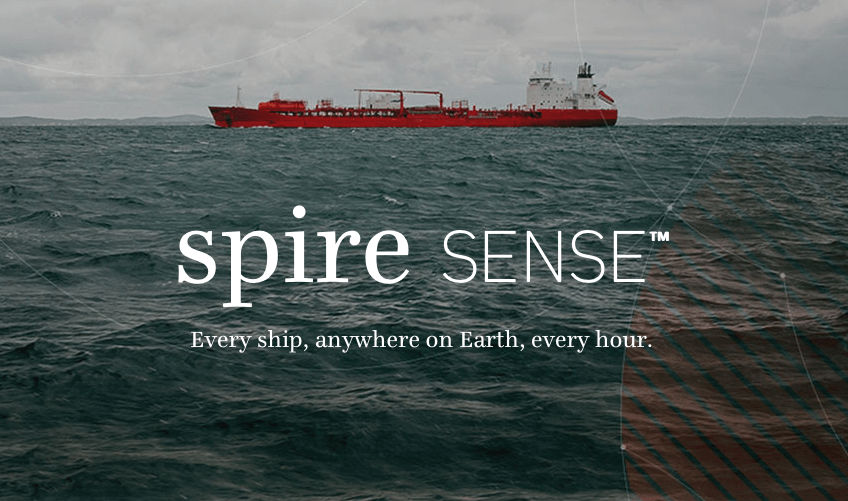According to the American Association of Port Authorities, “The United States is served by some 360 commercial ports that provide approximately 3,200 cargo and passenger handling facilities.” Food and farm products, including wheat and wheat flour, corn, soybeans, rice, cotton, and coffee are listed among the leading commodities shipped for domestic and foreign trade through U.S. ports. Inorganic fertilizers and forest products are also on that list. Each of America’s 50 states relies on at least 15 seaports to handle its imports and exports, which total more than $3.8 billion worth of goods moving through U.S. seaports each day.
Satellite powered data company Spire Global, Inc. is looking for a way to take the danger and guesswork out of maritime travel–for both commodities and passengers. Spire recently announced the close of a $40M Series B led by Promus Ventures. Existing investors RRE Ventures and Lemnos Labs participated in the round, along with Bessemer Venture Partners and Jump Capital. Promus Ventures invests in early-stage software companies that have their sights set on changing the world. Their portfolio already includes agtech player Airware.
Founded in 2012, Spire offers the first data stream designed for full maritime awareness that delvers real time intelligence from any location around the globe. Considering that most of the goods–including agricultural products–that we purchase have traversed at least one of the world’s oceans at some point, Spire’s potential applications and benefits are countless.
“Literally trillions of dollars worth of goods cross the oceans every year, and yet today’s technology for keeping people and goods safe in that environment is unreliable, and erratic at best,” reads Spire’s website. Roughly 90 percent of global trade is transported using large ocean-traversing container vessels.
Although ship tracking data technology has been around for a few years, the data was not reliable or abundant enough for companies to justify purchasing the service. This left many industries that rely on maritime travel with little to no insight regarding where their goods were currently located in our vast oceans.
Despite many advances in modern maritime technology, large container vessels face a host of potential threats to their successful passage across the sea. The lack of real time data regarding location, weather, and nearby domain not only puts the ship’s cargo in danger, but the crew and passengers as well. The risks and dangers threatening safe passage include delayed search time and rescue efficiency for Coast Guard officers, modern day pirates, and a lack of data to support on-the-spot decision making.
One of Spire’s products, Spire Sense, offers the most frequently refreshed global ship tracking data in the maritime industry, providing previously unseen insight into many problems that make maritime travel dangerous and unpredictable.
Spire can configure Sense to meet any ocean traveller’s needs, utilizing several key partnerships with services that offer high resolution imaging and data fusion. “Whether your use case involves simple geofencing or using data with pattern recognition for Illegal, Unreported, and Unregulated (IUU) fishing detection, we can configure Sense to meet your needs.”
Sense uses a variety of satellite-based technologies to resolve many of these woes. Each vessel must be equipped with an automatic tracking system called an Automatic Identification System (AIS). The AIS helps identify and locate vessels by exchanging data electronically with other ships and AIS base stations. Once a ship is over 50 nautical miles from port, however, the signal from its AIS is blocked by the curvature of the Earth. Spire’s Low Earth Orbit satellites capture and relay critical information from every ship regardless of its location.
By fusing AIS and weather data, or fusing AIS with another type of terrestrial or space-based data provider, Sense can deliver an ultra contextual data stream to help ocean navigators overcome a battery of obstacles. Spire Stratos utilizes data collected from 10 satellites to measure global weather patterns. Using a process called GPS radio occupation, the satellites measure the change in GPS signal readings as they pass through the Earth’s atmosphere to calculate incredibly precise profiles for pressure, humidity, and temperature on Earth.
As an added benefit, commodity sellers who use maritime shipping can access virtually real-time information regarding the exact location of the vessel carrying their goods.
Have news or tips? Email [email protected].





